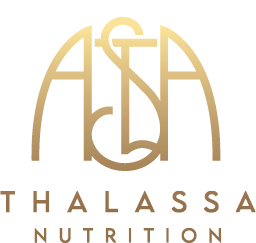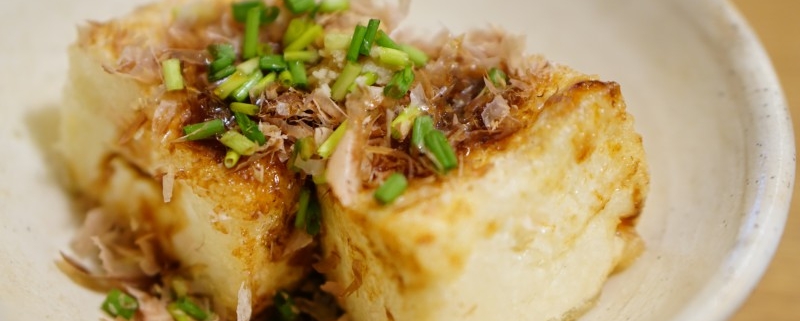Vegan Keto Diet Guide
Vegan Keto Diet Guide: Benefits, Foods and Sample Menu
The ketogenic diet is a high-fat, low-carb, moderate-protein diet promoted for its powerful effects on weight loss and overall health.
Though often associated with animal foods, this way of eating can be adapted to fit plant-based meal plans — including vegan diets.
Vegan diets exclude all animal products, making it more difficult to eat low-carb.
However, with careful planning, vegans can reap the potential benefits of a ketogenic diet.
This article explains what to eat and avoid on a vegan keto diet and provides a one-week vegan keto menu.
The ketogenic diet is low in carbs, high in fat and moderate in protein.
Carbs are typically reduced to less than 50 grams per day to reach and maintain ketosis — a metabolic process in which your body burns fat for fuel instead of glucose (1, 2).
Since this way of eating is composed mostly of fat — generally around 75% of your intake — keto dieters often turn to high-fat animal products, such as meats, butter and full-fat dairy.
However, those who eat plant-based diets, including vegans, can follow a ketogenic diet as well.
People on a vegan diet consume only plant-based foods, such as vegetables, fruits and grains, and avoid animal-based foods like meat, poultry, eggs and dairy.
Vegans can reach ketosis by relying on high-fat, plant-based products like coconut oil, avocados, seeds and nuts.
Summary The vegan keto diet is a low-carb, high-fat, moderate-protein diet that excludes all animal-based foods.
Several health benefits are associated with vegan and ketogenic diets. However, no studies focus specifically on vegan keto diets.
Following a vegan diet has been shown to lower the risk of chronic health conditions, such as heart disease, diabetes and certain cancers.
For example, studies have observed that vegans have a 75% lower risk of developing high blood pressure and up to a 78% risk reduction of type 2 diabetes (3).
What’s more, vegans tend to weigh less than non-vegans, and those who adopt vegan diets are more successful at losing weight than people who eat animal products (4).
A review of 12 studies found that over 18 weeks, people who followed vegan diets lost an average of 5.5 pounds (2.52 kg) more than participants on non-vegetarian diets (5).
Like the vegan diet, research has shown that following the high-fat, low-carb ketogenic diet may positively impact your health.
The keto diet is well known for its effectiveness in weight loss, blood sugar control and reduced heart disease risk factors.
A study in 58 obese children and teens showed that participants following a ketogenic diet lost significantly more weight and fat mass than those on a low-calorie diet.
In addition, the keto diet significantly raised levels of adiponectin, a protein involved in blood sugar regulation and fat metabolism (6).
Higher levels of adiponectin have been associated with better blood sugar control, reduced inflammation and a lower risk of obesity-related diseases, including heart disease (7, 8).
Ketogenic diets have also been shown to reduce heart disease risk factors, including high triglycerides, blood pressure and “bad” LDL cholesterol (9).
Being that both vegan and ketogenic diets may benefit your health in similar ways, it’s likely that combining the two by following a vegan keto diet would positively impact health as well.
Summary Both vegan and ketogenic diets have been linked to health benefits, including weight loss and a lower risk of heart disease and diabetes.
When following a vegan keto diet, you must significantly reduce your carb intake and replace carbs with healthy fats and vegan sources of protein.
Animal products, including eggs, meat, poultry, dairy and seafood, are excluded on a vegan keto diet.
Here are examples of foods that should be completely avoided:
- Meat and poultry: Beef, turkey, chicken, pork.
- Dairy: Milk, butter, yogurt.
- Eggs: Egg whites and egg yolks.
- Seafood: Fish, shrimp, clams, mussels.
- Animal-based ingredients: Whey protein, honey, egg white protein.
Here are examples of foods that should be significantly reduced:
- Grains and starches: Cereal, bread, baked goods, rice, pasta, grains.
- Sugary drinks: Sweet tea, soda, juice, smoothies, sports drinks, chocolate milk.
- Sweeteners: Brown sugar, white sugar, agave, maple syrup.
- Starchy vegetables: Potatoes, sweet potatoes, winter squash, beets, peas.
- Beans and legumes: Black beans, chickpeas, kidney beans.
- Fruits: All fruits should be limited. However, small portions of certain fruits like berries are allowed.
- High-carb alcoholic beverages: Beer, sweetened cocktails, wine.
- Low-fat diet foods: Low-fat foods tend to be high in added sugar.
- High-carb sauces and condiments: Barbecue sauce, sweetened salad dressings, marinades.
- Highly processed foods: Limit packaged foods and increase whole, unprocessed foods.
The level of carbohydrate restriction when following a vegan keto diet varies depending on your health goals and individual needs.
In general, healthy, high-fat vegan foods and vegan protein sources should make up the majority of your diet.
Summary Animal products, as well as high-carbohydrate foods such as grains, sweetened beverages and starchy vegetables, should be restricted when following a vegan keto diet.
When following a vegan keto diet, it’s important to focus on vegan, healthy foods that are high in fat and low in carbs.
Foods to eat on a vegan keto diet include:
- Coconut products: Full-fat coconut milk, coconut cream, unsweetened coconut.
- Oils: Olive oil, nut oil, coconut oil, MCT oil, avocado oil.
- Nuts and seeds: Almonds, Brazil nuts, walnuts, hemp seeds, chia seeds, macadamia nuts, pumpkin seeds.
- Nut and seed butter: Peanut butter, almond butter, sunflower butter, cashew butter.
- Non-starchy vegetables: Leafy greens, Brussels sprouts, zucchini, broccoli, cauliflower, peppers, mushrooms.
- Vegan protein sources: Full-fat tofu, tempeh.
- Vegan full-fat “dairy”: Coconut yogurt, vegan butter, cashew cheese, vegan cream cheese.
- Avocados: Whole avocados, guacamole.
- Berries: Blueberries, blackberries, raspberries and strawberries can be enjoyed in moderation.
- Condiments: Nutritional yeast, fresh herbs, lemon juice, salt, pepper, spices.
Though the keto diet cuts out many food groups that vegans rely on, such as whole grains and starchy vegetables, a vegan keto diet can be followed with careful planning.
Vegan keto dieters should get their calories from whole, unprocessed foods while avoiding highly processed vegan foods.
Summary Vegan keto diet foods include non-starchy vegetables, avocados, nuts, seeds, coconut, vegan protein sources and healthy oils.
Though the vegan keto diet may seem very restrictive, many meals can be constructed using vegan-friendly ingredients.
Following is a one-week sample menu for the vegan keto diet:
Monday
- Breakfast: Keto porridge made with full-fat coconut milk, ground flaxseeds, chia seeds and unsweetened shredded coconut.
- Lunch: Vegan cream and low-carb vegetable soup.
- Dinner: Cauliflower rice stir-fry with tofu.
Tuesday
- Breakfast: Tofu scramble with vegan cheese and avocado.
- Lunch: Zucchini noodles with walnut pesto and vegan cheese.
- Dinner: Vegan walnut chili with vegan cheese and sliced avocado.
Wednesday
- Breakfast: Chia pudding made with full-fat coconut milk topped with sliced almonds.
- Lunch: Creamy coconut and cauliflower soup.
- Dinner: Shirataki noodles with mushrooms and vegan Alfredo sauce.
Thursday
- Breakfast: Full-fat coconut yogurt topped with nuts, seeds and unsweetened shredded coconut.
- Lunch: Tofu, vegetable and coconut curry.
- Dinner: Cauliflower crust pizza topped with non-starchy vegetables and vegan cheese.
Friday
- Breakfast: Tofu scramble with vegan cheese, mushrooms and spinach.
- Lunch: Vegetable and tofu salad with avocado dressing.
- Dinner: Eggplant lasagna made with vegan cheese.
Saturday
- Breakfast: Vegan keto smoothie with full-fat coconut milk, almond butter, cocoa powder and vegan protein powder.
- Lunch: Vegetable and tofu salad with avocado dressing.
- Dinner: Cauliflower fried rice.
Sunday
- Breakfast: Coconut almond chia pudding.
- Lunch: Large green salad with tempeh avocado, vegan cheese, non-starchy vegetables and pumpkin seeds.
- Dinner: Vegan cauliflower mac and cheese.
Vegan Keto Snacks
Try out these vegan-friendly snacks to keep your appetite in check between meals:
- Sliced cucumber topped with vegan cream cheese
- Coconut fat bombs (high-fat snacks made with coconut butter, coconut oil and shredded coconut)
- Nut and coconut bars
- Coconut milk and cocoa smoothie
- Trail mix with mixed nuts, seeds and unsweetened coconut
- Dried coconut flakes
- Roasted pumpkin seeds
- Celery sticks topped with almond butter
- Coconut milk yogurt topped with chopped almonds
- Olives stuffed with vegan cheese
- Guacamole and sliced bell pepper
- Cauliflower tater tots
- Coconut cream with berrie Summary There are many delicious foods to choose from when following a vegan keto diet. Meals and snacks should be high in healthy fats and low in carbs.
While the vegan keto diet may benefit your health, it has some potential drawbacks.
The Importance of Supplements and Diet Quality
Vegan diets tend to be low in important nutrients, especially if not carefully planned.
Vitamin B12, vitamin D, vitamin K2, zinc, omega-3 fats, iron and calcium are examples of nutrients that some vegan diets lack (10, 11).
Because the vegan keto diet is more restrictive than normal vegan diets, it’s critical that those following it supplement with high-quality vitamins and minerals and plan their meals to ensure a nutritionally adequate diet.
Eating fortified foods, focusing on whole-foods and enhancing nutrient availability, for example through fermenting and sprouting, is important for people following a vegan keto diet.
However, it may be difficult for vegan keto dieters to meet their micronutrient needs through food alone.
Supplementing with certain vitamins and minerals commonly lacking in vegan diets is a smart way to prevent potential deficiencies and ensure that your daily requirements are met.
Vegan Keto Diet Side Effects
Transitioning to a ketogenic diet can be difficult.
Often referred to as the keto flu, the transition period from a higher-carb diet to a keto diet can be challenging on your body.
As your body switches from burning glucose to fat for fuel, unpleasant symptoms may occur.
Side effects of the vegan keto diet may include (12):
- Fatigue
- Nausea
- Irritability
- Constipation
- Poor concentration
- Diarrhea
- Weakness
- Headaches
- Muscle cramps
- Dizziness
- Difficulty sleeping
Staying hydrated, getting enough rest, eating fiber-rich foods and engaging in light activity can help ease keto flu symptoms.
What’s more, supplementing with the electrolytes magnesium, sodium and potassium can help reduce certain symptoms, such as muscle aches, headaches and insomnia.
As the vegan keto diet restricts many foods, it’s not appropriate for everyone.
The vegan keto diet may not be suitable for those with type 1 diabetes, women who are pregnant or breastfeeding, athletes or those with eating disorders or a history of disordered eating.
If you consider transitioning to a vegan keto diet, consult your doctor or a qualified health professional first to ensure the diet is safe to follow.
Summary Low-carb, high-fat diets may not be suitable for pregnant women, children and people with certain medical conditions. If you’re unsure whether the vegan keto diet is the right choice for you, seek advice from your doctor.
The high-fat, low-carb vegan keto diet focuses on whole, unprocessed, plant-based foods.
Vegan and ketogenic diets have been linked to benefits like weight loss and reduced heart disease and diabetes risks.
Certain supplements may be necessary to ensure nutrient needs are met, including iron and vitamins B12 and D.
Though research shows that both the vegan diet and the keto diet may benefit your health, studies on the effects of the vegan keto diet are needed to determine if this diet is effective and safe to follow long term.
by Jillian Kubala,



